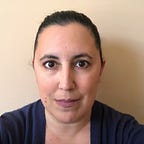Should People with Addictions Be Forced to Attend AA?
One nurse’s fight for his right to be atheist
A nurse that I used to work with developed an addiction a number of years back. When it came out, in order to have any hope of getting his job and his nursing license back, he was required to see an addictions specialist and adhere to the treatment plan that was set out. One of the elements of the treatment plan this doctor came up with was attending Alcoholics Anonymous (AA) meetings.
This nurse is an atheist, and didn’t find AA and its emphasis on a higher power helpful at all. He refused to continue going to meetings, and ended up getting fired by the health authority for not following his treatment plan.
He ended up taking the issue to the provincial Human Rights Tribunal, complaining that he was discriminated against on religious grounds because he was an atheist. According to an article on the CBC website a couple of months ago, a settlement was reached between the nurse and the health authority, and the health authority will no longer require health professionals to attend 12-sep groups if it goes against their religious beliefs.
While AA is Christian-influenced, it isn’t associated with any particular religion or denomination. Still, a higher power plays a major role in the 12 steps.
Alcoholics Anonymous Twelve Steps:
- We admitted we were powerless over alcohol — that our lives had become unmanageable.
- Came to believe that a Power greater than ourselves could restore us to sanity.
- Made a decision to turn our will and our lives over to the care of God as we understood Him.
- Made a searching and fearless moral inventory of ourselves.
- Admitted to God, to ourselves, and to another human being the exact nature of our wrongs.
- Were entirely ready to have God remove all these defects of character.
- Humbly asked Him to remove our shortcomings.
- Made a list of all persons we had harmed, and became willing to make amends to them all.
- Made direct amends to such people wherever possible, except when to do so would injure them or others.
- Continued to take personal inventory and when we were wrong promptly admitted it.
- Sought through prayer and meditation to improve our conscious contact with God as we understood Him, praying only for knowledge of His will for us and the power to carry that out.
- Having had a spiritual awakening as the result of these steps, we tried to carry this message to alcoholics, and to practice these principles in all our affairs.
If God isn’t your thing, it’s hard to avoid given how enshrined God is in the AA program.
It’s possible to substitute some non-deity form of higher power, but it requires considerable mental and spiritual acrobatics.
While AA (and its other 12-step variations like Narcotics Anonymous, etc.) works for some people, it doesn’t work for everybody. It’s generally not considered an evidence-based treatment for substance use disorder, as there isn’t solid research to show that it works.
While a self-help fellowship is not necessarily a bad thing, it seems like a strange thing for an addictions doctor to lean on as a non-negotiable part of a treatment plan.
It’s not as though there aren’t other treatments available. There are other group-based programs available, such as SMART Recovery, which is based on a form of psychotherapy called rational emotive behaviour therapy. The CBC news story mentions that for this particular nurse the game-changer was the drug naltrexone, which blocks the effects of opioids and alcohol.
I can see that an addictions physician who treats healthcare professionals would be in a difficult position. They need to make sure someone isn’t going to go back to work and put patients at risk.
But insisting on AA when someone says that it’s just not the right fit for them seems inappropriate.
I’ve never had a substance use disorder, but if I did, I can say with certainty that AA would not work for this card-carrying member of the atheist party. If I wasn’t interested in treatment at all I’d probably be trying to say no to a lot of different things, but I think someone can be fully committed to recovery and still not want to do AA.
Just because someone is a health professional doesn’t mean they shouldn’t have the right to patient-centred care with evidence-based treatment tailored to what’s suitable for them. I’m really impressed with this nurse for fighting this fight, even though it’s taken years.
When it comes to any form of addictions treatment, what works for one person won’t work for another, and it’s hard to know which it will be until someone tries the particular form of treatment. If addictions treatment providers are so rigid that they want to adhere to their plan rather than go with what’s effective for the patient with the addiction, that’s really not accomplishing much of anything.
Originally published at https://mentalhealthathome.org on February 4, 2020.
